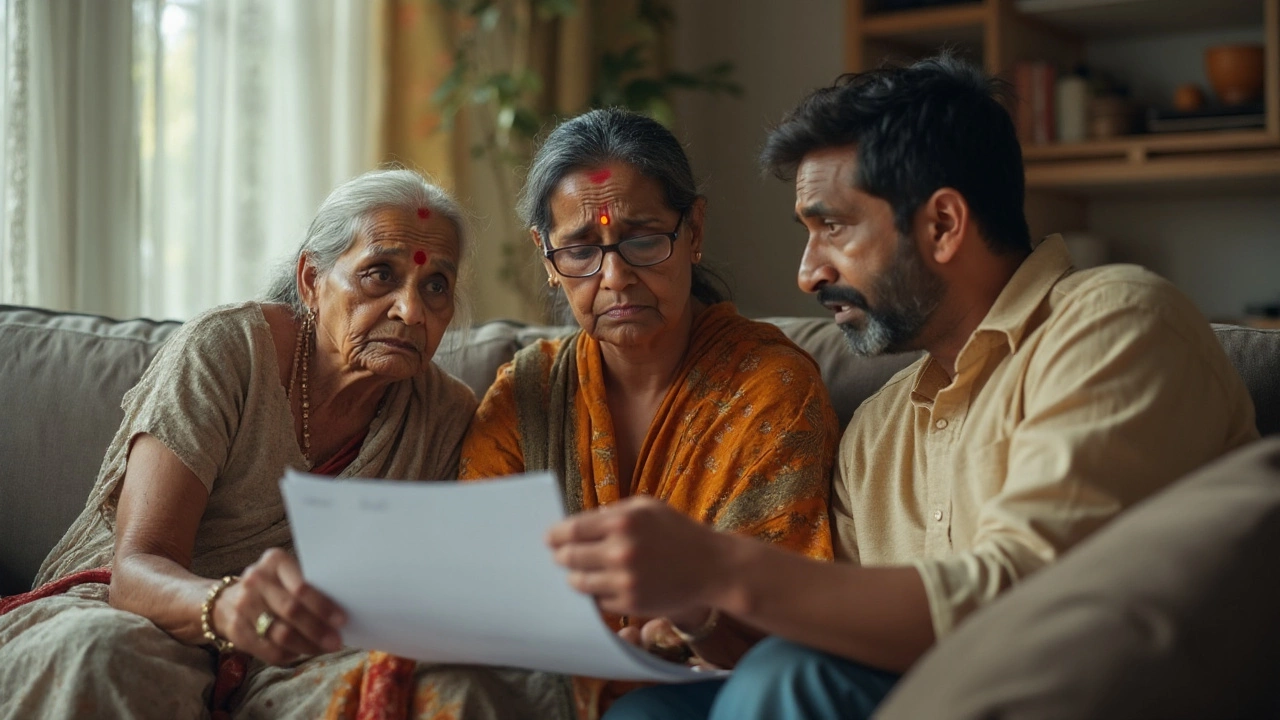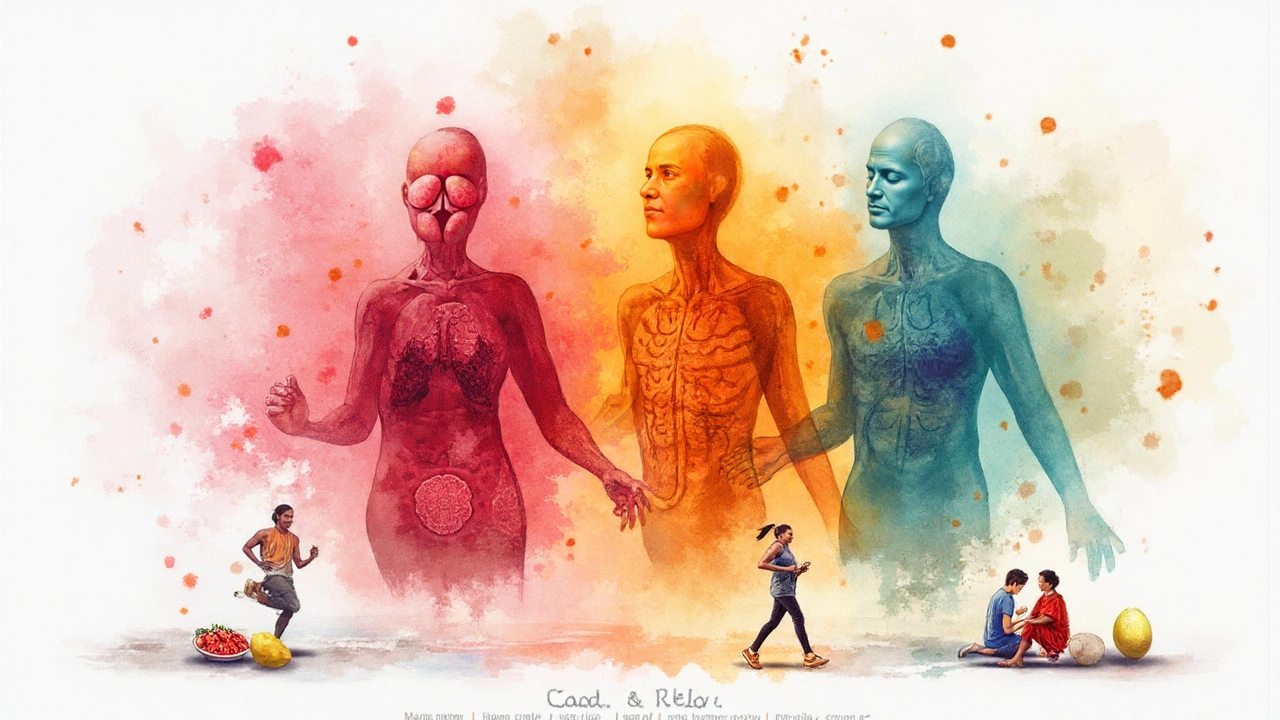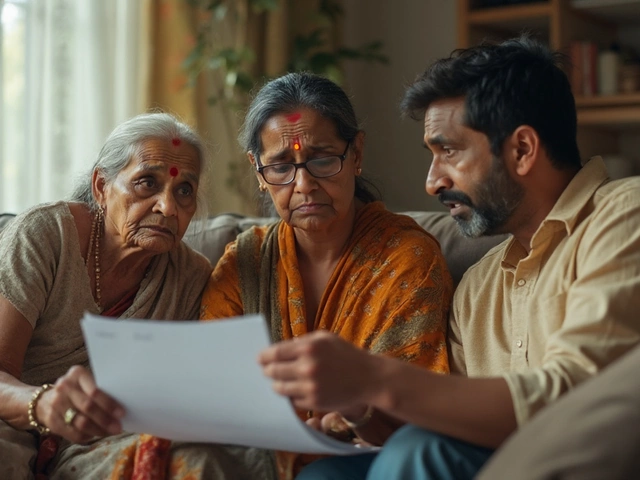
Top 3 Deadliest Cancers: Symptoms, Risks & Survival in 2025
Most people don’t go through life expecting to face a disease that could end everything. But what if I told you that the three deadliest cancers play quiet arithmetic with millions of lives, right under our noses? The scary part isn’t just the numbers, but how sneaky these cancers are—how often they go unnoticed till it’s far too late. I still remember a mate from Brixton: never smoked a day in his life, ran marathons, played five-a-side every Sunday, but cancer doesn’t need an invitation. And while medicine’s gotten sharper, these three cancers—lung, colorectal, and liver—still take more lives than any others, year in, year out. Why do they win so often? Let’s get into the nuts and bolts, so you can recognise the signs and, if it comes down to it, fight back smarter.
Lung Cancer: The Quiet Stealer
Lung cancer sits at the very top of this grim leaderboard, stubbornly refusing to budge. You might imagine that most cases are just lifelong smokers or those breathing in thick factory smoke all day. But here’s a twist: one in five lung cancer patients in the UK have never touched a cigarette. Air pollution, radon (which can seep up through old homes), and passive smoke all play dirty roles too. But let’s not dodge the obvious—smoking is still the villain-in-chief, causing roughly 72% of cases in Britain.
What makes lung cancer such a lethal opponent is its silence. It rarely throws up warning flares until the late stages. Shortness of breath, a cough that just won’t quit, coughing up blood, and unexplained weight loss—these are the red flags. But often by the time folks head to the GP, the cancer has already spread beyond the lungs. Survival rates are dire—only about 16% of patients in England will make it beyond five years. Compare that with skin cancer, which is caught early so frequently that survival rates soar above 90%. In numbers:
| Country | 5-Year Survival Rate |
|---|---|
| United Kingdom | 16% |
| United States | 18% |
| Japan | 32% |
Tough part? Good screening is tricky. Low-dose CT scans can spot very early cancers, but the NHS only offers lung cancer checks to people aged 55-74 who have ever smoked. That means millions fall through the cracks. The best defence? Ditch smoking (even vaping is still risky, as studies from 2024 show potential links), avoid second-hand smoke, and make sure your home is tested for radon if you live in a high-risk area. If you work in places with high air pollutants, wear a mask regularly—guys at my uncle’s construction firm swear by it ever since one of their mates got diagnosed. Don’t ignore persistent coughs or unexplained chest pain. Not all coughs are cancer, but you’re always better off safe than sorry.
Colorectal Cancer: The Silent Creeper
If you think colon or bowel cancer is something that only hits older folks or those who love a Sunday fry-up, think again. Colorectal cancer is rising alarmingly among under-50s—there’s even a phrase for it now: "young-onset colon cancer." What messes with your gut can mess with your life, quite literally, and it’s now the second-leading cancer killer worldwide.
Symptoms hide behind excuses—"just a bit of tummy trouble," "maybe too many spicy curries," or "it’s probably hemorrhoids." Persistent changes in bowel habit (diarrhea one week, then constipation the next), blood in your stool, unexplained fatigue, and sudden weight loss demand attention. In 2025, the biggest risk remains age (over 50), family history, and a diet overloaded with red or processed meats. But years glued to desks, less fibre, too much booze—modern lifestyles are making things worse. And get this: in 2024, a UK study found that 11% of people diagnosed were under 55, up from 7% ten years ago.
Screening is a game changer. The FIT (Faecal Immunochemical Test) mailed out to everyone aged 60–74 in England (and much earlier in Scotland and the US) can catch tiny traces of blood far before you feel symptoms. If you’re high-risk or getting close to 50, ask your GP for a test, even if you’re below the official age. Polyps often hang out in your colon for years before turning cancerous—removing them early is like winning the lottery you didn’t know you played.
| Country | 5-Year Survival Rate (All Stages) |
|---|---|
| UK | 55% |
| USA | 65% |
| Japan | 71% |
Want to tilt the odds even more your way? Eat more fibre (think beans, nuts, wholegrains), cut down on red meat, move every day—even if you just swap the tube for a brisk walk. Trust me, your gut will thank you. And don’t ignore blood in the loo, even if it’s “probably just piles.” It’s worth checking.

Liver Cancer: The Rising Threat No One Talks About
Liver cancer rarely makes headlines, but it’s charging up the ranks. Rates have doubled in the UK since 2000, and it now claims more British lives than cervical and testicular cancers combined. Worldwide, it’s the third biggest cause of cancer death, behind only lung and colorectal.
The usual suspects? Chronic hepatitis B or C, heavy alcohol use, obesity, and NAFLD (Non-Alcoholic Fatty Liver Disease—thanks, sugar and processed food). Many don’t realise that liver cancer rarely starts on its own—over 80% of the time, it appears in people with existing liver damage, known as cirrhosis. And here’s the most sinister part: nearly three-quarters of Britons with liver cancer find out only when it’s spread or caused severe symptoms.
Warning signs are subtle and often dismissed: feeling tired all the time, losing your appetite, pain or swelling under your ribs, or yellowing of the skin (jaundice). In 2024, the NHS rolled out new GP guides pushing for urgent scans if these symptoms show up in anyone at risk—meaning heavy drinkers, diabetics, or those with known hepatitis. But lots of people still fly under the radar. Hepatitis B and C infections are preventable or treatable, but many walk around undiagnosed.
| Risk Factor | Estimated Risk Increase |
|---|---|
| Chronic Hepatitis B/C | 10x |
| Heavy alcohol use | 5x |
| Obesity/NAFLD | 2-3x |
If you had a dodgy tattoo in the 90s, shared razors in your student days, or grew up in countries with high hepatitis rates, ask your doc about hepatitis testing. Cut down on alcohol, get moving, and watch your waistline. There’s also a safe, effective hepatitis B vaccine—it’s now given routinely to newborns in the UK, but older people often miss it. Early detection through regular ultrasounds and blood tests (for people at risk) is a lifesaver. Exercise, nutritious eating, and less booze aren’t just things fitness influencers say—they’re proven ways to cut your risk. Small tweaks in habit really add up.
What Ties These Cancers Together?
The biggest killer cancers—lung, colorectal, and liver—share more in common than just miserable statistics. They’re heavily influenced by lifestyle and, for the most part, love to stay hidden till it’s almost too late. Smoking, poor diet, too much alcohol, not enough exercise, and unchecked viral infections make an ugly club that millions unknowingly join every year. Genetics plays a part, but habits weigh in just as much.
Access matters, too. In the UK, there’s a postcode lottery—your chances rise if you’re in London or Manchester versus remote areas where screening and specialist treatment lag behind. In 2025, more workplaces in Britain are pushing for regular health screenings and offering incentives for quitting smoking or taking part in weekly runs. Everyday tech is helping—fitness trackers now nudge you if your steps drop below last year’s average and even remind you to book cancer screenings if you forget.
Don’t get swept up in the idea that “it won’t happen to me.” One in two people in the UK will face cancer in their lifetime. But the difference between surviving and not isn’t luck—it’s catching it early, quitting what hurts you, and stacking your odds with small, regular actions. If you or someone you love brushes off weird symptoms, push harder. Keep going to screenings, say yes to tests, and stay stubbornly curious about any changes in your body. Remember, while cancer is ruthless, it’s not unbeatable—especially if you spot it first.

Early Detection and Prevention: What Actually Works?
With so much noise online, it’s hard to know what advice to take seriously. But real studies—not clickbait—keep showing the same things work best. Here’s what gives you the clearest shot at dodging the three most lethal cancers:
- Don’t smoke (yes, vaping counts; newer research still shows risks).
- Slash your alcohol—but if you drink, pace yourself, and have booze-free days.
- Load up on fibre—at least 30 grams daily from veg, fruit, legumes, and wholegrains. NHS stats from 2025 show most in the UK get only half that.
- Get moving—walking, cycling, or anything to avoid being chained to the sofa.
- Go for every screening you’re offered—don’t chuck it in the bin.
- Ask your GP if you need hepatitis B/C testing, especially if you tick any risk box.
- Don’t ignore weird changes; if it feels wrong, get it checked.
- If you’ve got a family history, mention it early and often—screening might start younger for you.
- Stay in touch with what’s normal for your body. You know yourself better than anyone.
Popping just a little extra Vitamin D or “detox teas” won’t fend off deadly cancers. It’s the dull, consistent stuff—good food, moving every day, and saying no to habits you know are trouble. That’s the real shield. Don’t give these cancers more power than they already have; fight dirty, fight early, and don’t blink.

Arnav Singh
I am a health expert with a focus on medicine-related topics in India. My work involves researching and writing articles that aim to inform and educate readers about health and wellness practices. I enjoy exploring the intersections of traditional and modern medicine and how they impact healthcare in the Indian context. Writing for various health magazines and platforms allows me to share my insights with a wider audience.
Popular Articles
About
Medical Resource Center India is a comprehensive online platform dedicated to providing reliable health information and medical resources in India. Explore a wide range of articles, tips, and advice on medicine, healthcare services, and wellness. Stay informed about the latest developments in Indian medicine and access valuable insights into maintaining a healthy lifestyle. Discover expert guidance and health solutions tailored for every Indian citizen. Your go-to destination for authoritative medical knowledge in India.






